Oprah Winfrey and Sidney Poitier’s Daughters Discuss New Documentary Sidney
Sidney, the new documentary about the life and career of legendary Hollywood actor Sidney Poitier, had its world premiere at the Toronto International Film Festival. On Sunday, September 11, 2022, broadcast journalist Gayle King hosted a panel discussion after the film screening for a packed house at the Royal Alexandra Theatre. Classic Couple was there for the screening of this extraordinary documentary, captivated by the discussion. Excerpts from the panel below.
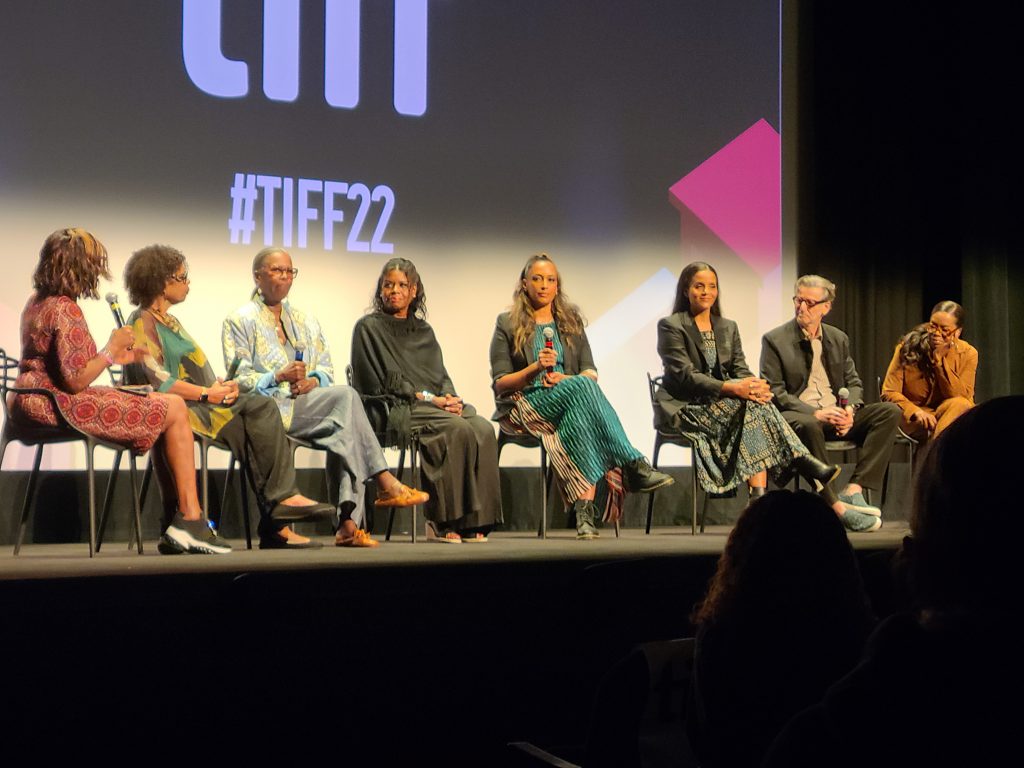
Gayle King: Was there anything that surprised you, that you learned about again, by watching the film?
SydneyTamiia Poitier: I saw it on a smaller screen first, and I just burst into tears initially just to hear his voice. And to see him and to feel again because he had been sick for so long. There was a combination of deep grief but also real genuine ability to sort of have him all around with me.
There were things in the film that surprised me such as when he talked about how lonely it was being the only one. That’s not something that he let us in on as his children. He was always such a pillar of strength for us and for the world. So, to know what that journey actually was for him—of course, it was lonely.
Gayle King: And you said many people saw him as the actor, but I saw him as a father teaching us all. What do you mean?
Beverly Poitier-Henderson: My father was the type of man that after he would finish working, he would come home and he would talk about all kinds of information about the world, about life. And we would all sit around the dinner table and there was always a lesson to be learned.
Gayle King: Derik, how do you decide what to include? How did you go and find all the clips that you did? Can you just briefly describe the process that you used?
Derik Murray: There was a team of people within the archival group and, of course, the writer and the editor that are instrumental in that they literally spent a year and a half pouring through the content. But most importantly, the foundation that drives this story, was having Sidney tell his own story, which was the vision of this movie. That was clearly the way the movie had to be made—that goes to Oprah for sitting down with Sidney and doing two days of interviews, eight hours of content that was just so valuable for the film.
Gayle King: Oprah was called the North Star on this project, and I absolutely am biased, but that’s true. So, I’m curious about when you did that interview with Sidney you were planning his documentary before his death? When you started the interviews, what were you thinking?
Oprah Winfrey: Well, I’ve loved him all my life. At my 42nd birthday party, we met each other, and it was an instant bond of friendship. When I was approached by Reginald Hudlin about being a producer, I said you know, I have more hours of footage that I did when I first started my network in 2012. That first interview lasted for four and a half hours the first day and two total days of interviews. And I just wanted it on the record.
When I finished, he said that I could use it for my network, but I could only run it one time. On cable, you know, things run over and over and over again. Only one time Sidney said, “Because my story is all my family will have when I’m gone. And so, I don’t want it to be played over and over and over and over again.” So, his family gave me permission to use all those hours that I had for the film.
Sidney just had this special element, this divine ethereal quality that you don’t see in other human beings. You recognize it; I saw it the minute I met him. A stranger on the street who came up to say hello to him and profess their love or admiration would feel like the most important person in the world. He will face you with the gaze. He will give you his full presence. And he will love you. He loves people, and he just has this power and strength that is indescribable really.
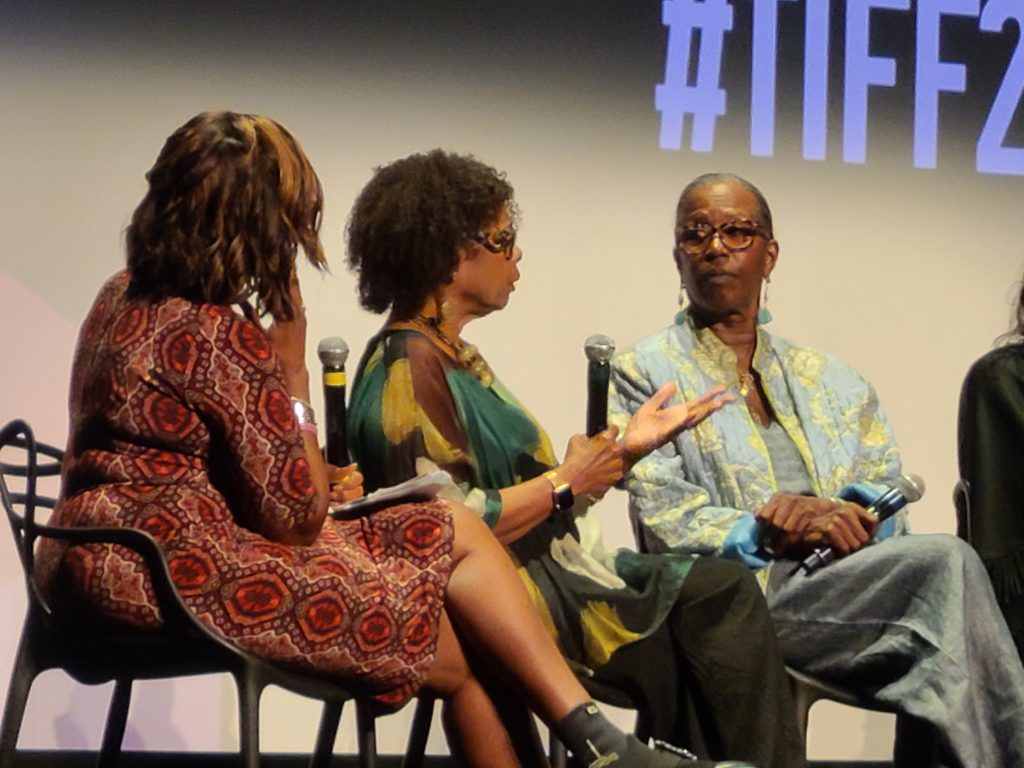
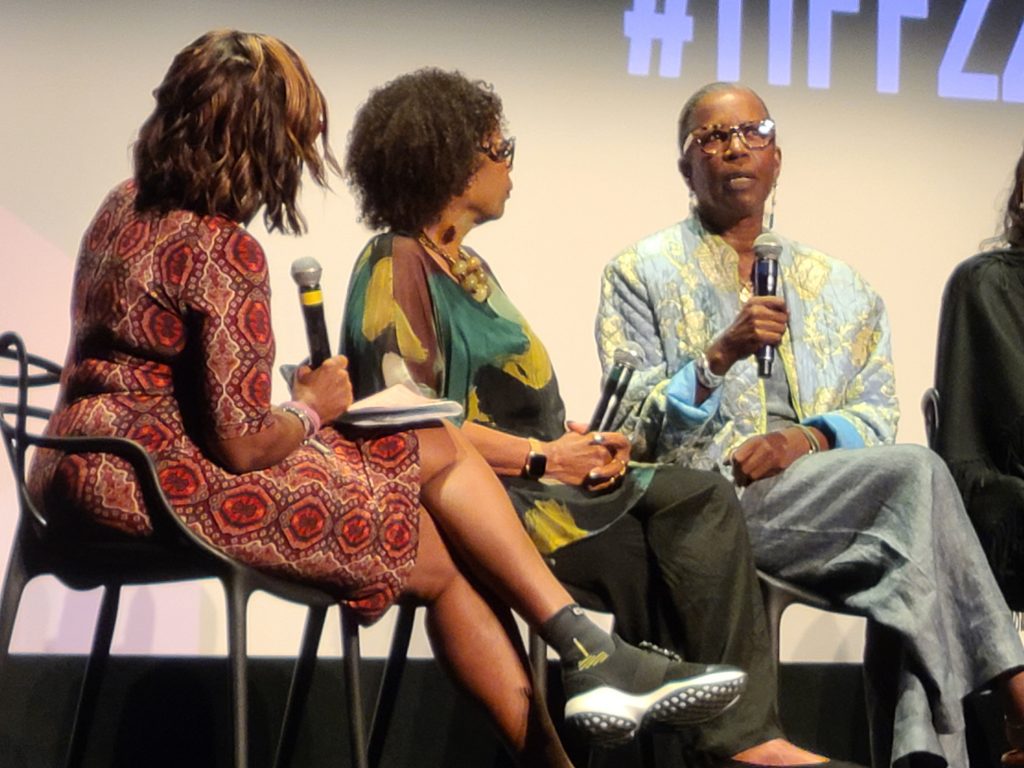
Gayle King: Sidney was clearly a girl dad as there are six daughters. Clearly all of you were very close. And that was important to all of you, true?
Pamela Poitier: Yes, it’s very important that we support each other and that we know that we are family. Bottom line is it’s going to be us, and we’re going to have to be together. We’re actively supporting each other and love each other.
Sydney Tamiia Poitier: And our moms always felt the same way. For our moms to love each other and be friends and for the kids to know that brought us together. We had two very strong, loving, caring, beautiful moms that made that a priority.
Oprah Winfrey: What I learned in the making of the film and listening to the interviews with the daughters, is that ultimately, when he said that the measure of a man was how well he takes care of his family, it was true for him. I interviewed over 35,000 people and many of them famous people. And for the most part people live this life where there’s this external life, and they bring that life home with them, and their children live in the shadow of it. But what I recognize with this film is that you all didn’t have to live in his shadow.
You actually lived in this light, because primarily this family was the primary essence of him. The external world that he showed to all of us was that—but then when he came home, he didn’t bring this loneliness with him. He didn’t bring his struggles with him. And so, to me, I love him even more after this film, because I understand what he did for his family and for his daughters, and how they got to see the real him and not the movie star. And how you all thought of him, even to this day as not as the movie star, but he was our dad. And that takes a special man to do that.
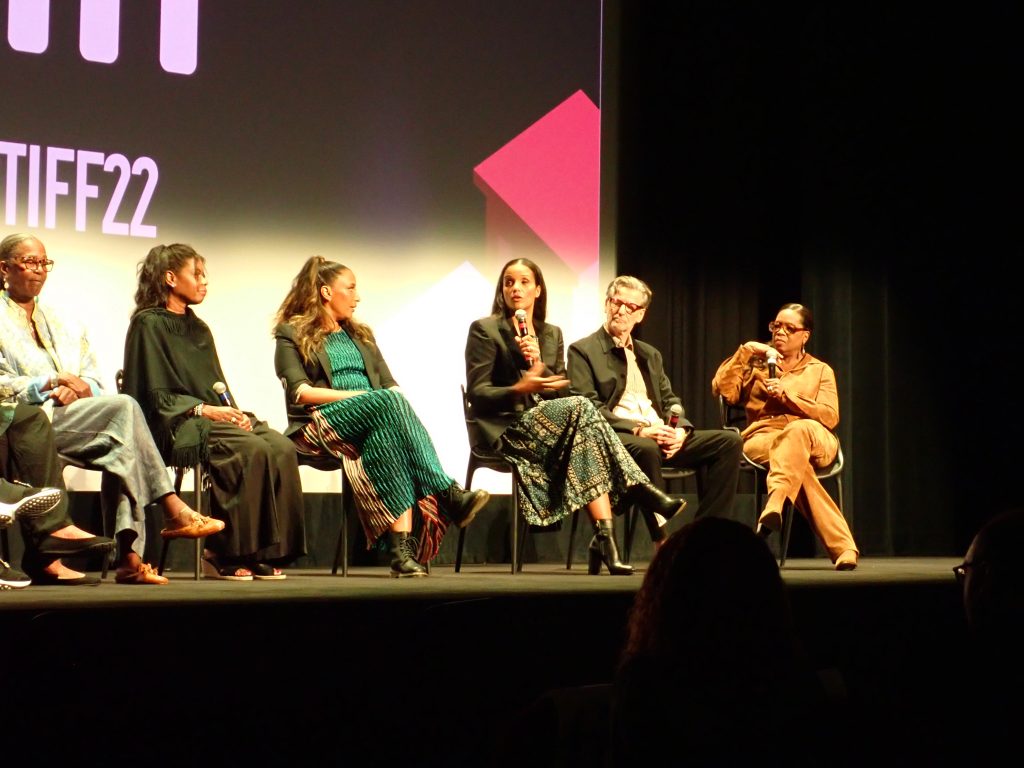
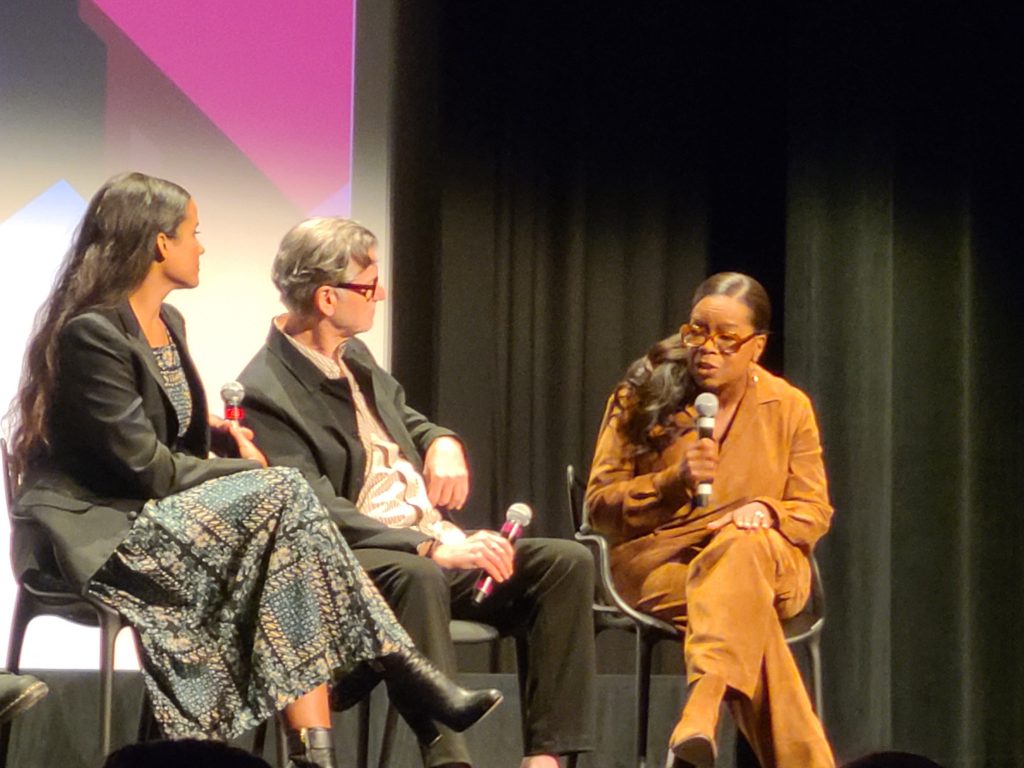
Gayle King: You said Sidney has been the most important person in your life. Why?
Oprah Winfrey: Well, because he kept the doors open for me. The fact that there was an Oprah Winfrey Show or could be Oprah Winfrey Show, is because he came first and without even knowing it humanized, Blackness. He humanized the idea of what it means to be a Black person and humanized what it means to be a successful Black person and made that acceptable in the eyes of people who heretofore didn’t know or weren’t aware.
He was being who he was. And to echo what’s been said here, he saw and felt everybody because he was so curious about life and about other people and treating everybody the same. And his ability to do that came from the core of him.
What you see in the beginning of the film really talks about the fact that his identity was built on respect and character and not on the color of his skin and his honor and duty to what his parents had given him was the most important thing. And every piece of art, every piece of work that he created or directed, came from the spirit and core of that. So, when you’re looking at his work, when you’re looking at his art, all of that is coming from the central core of who he is. That is the gift that he has left us with the spirit of who he is and was as a man who allows us to see what is possible.
If he can do that, I wonder what we could do, what I can do. That the same thing is true for all of us who have now witnessed his life. If he can go through 94 years being true to himself, living in honor for himself, living through a sense of integrity, not taking the easy way out, not taking the money, even when it would have been convenient and ease his pain and his family’s pain and suffering. If he could do that, I wonder what you can do.
